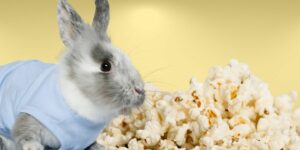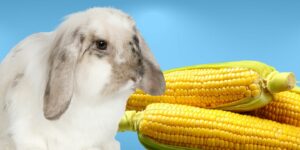Yes, rabbits can eat oats as part of a balanced diet. However, oats should only be given to rabbits in moderation and as an occasional treat, rather than a staple food. The importance of a balanced diet for rabbits is crucial to meet their nutritional needs and promote overall health.
Benefits of Oats for Rabbits
Fiber Content and Digestive Health
Oats are a good source of fiber which helps keep the rabbit's digestive system healthy. A healthy digestive system is essential for rabbits as it helps process their unique diet and maintain proper gut bacteria balance.
Protein for Muscle and Tissue Health
Oats also contain protein that aids in maintaining muscle and tissue health. While rabbits do not require high amounts of protein in their diet, an occasional treat containing protein can be beneficial.
Dental Health Benefits
The chewing required to eat oats can help prevent rabbits from developing dental problems. Rabbits' teeth continuously grow, and chewing on fibrous foods, like oats, helps wear down their teeth, preventing overgrowth and potential dental issues.
Risks of Feeding Oats to Rabbits
High Calorie Content and Weight Gain
While oats can be a healthy treat for rabbits, they are high in calories and should be given in moderation. A diet high in calories can lead to weight gain, which can cause numerous health issues in rabbits.
Potential for Digestive Upset
Oats can cause digestive upset if fed to rabbits in large quantities or if the rabbit is not used to eating them. Too many oats can disrupt the delicate balance in a rabbit's gut, leading to digestive issues and discomfort.
Overreliance on Oats and Nutrient Imbalance
Feeding too many oats to your rabbit can lead to nutrient imbalances if the rabbit begins to rely on oats as its primary food source. Rabbits require a variety of nutrients found in different food sources, such as hay, pellets, and fresh vegetables.
The Best Way to Feed Oats to Your Rabbit
Choosing the Right Type of Oats
- Rolled Oats vs. Steel-cut Oats: Rolled oats are better suited for rabbits, as they are easier for them to digest, compared to steel-cut oats.
- Avoiding Processed or Sweetened Oats: It is crucial to avoid feeding your rabbit processed or sweetened oats, as these can contain additives that can be harmful to them.
Proper Portion Sizes
The best way to feed oats to your rabbit is to give them a teaspoon of rolled oats as an occasional treat. This small portion will allow the rabbit to enjoy the benefits of oats without risking overconsumption.
Mixing Oats with Other Healthy Treats
- Fresh Vegetables
- Hay
- Herbs
Oats can be fed dry or mixed with other healthy treats, such as fresh vegetables or hay, adding variety to their diet.
Monitoring Your Rabbit's Health and Adjusting Portions
It is important to monitor your rabbit's food intake and body condition and adjust the portion of oats accordingly. Keep an eye out for any changes in weight, digestion, or overall health.
Alternatives to Oats for Rabbit Treats
Fresh Vegetables
Rabbits love a variety of fresh vegetables, such as leafy greens, bell peppers, and celery.
Fruit (in moderation)
Fruit can be a sweet treat for rabbits but should be given in moderation due to its high sugar content.
Herbs
Herbs like parsley, cilantro, and mint can also be a tasty and healthy treat for rabbits.
Pelleted Treats
High-quality pelleted treats specifically formulated for rabbits can be another option to introduce variety in their diet.
Conclusion
In conclusion, oats can be a healthy and enjoyable treat for rabbits, but they should only be given in moderation as part of a balanced diet. Remember the importance of moderation and balance in a rabbit's diet, and monitor their health and adjust treats as needed. By following these guidelines, you can ensure that your rabbit stays healthy and happy.




